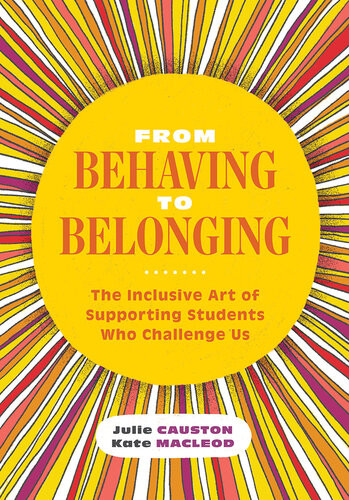

Most ebook files are in PDF format, so you can easily read them using various software such as Foxit Reader or directly on the Google Chrome browser.
Some ebook files are released by publishers in other formats such as .awz, .mobi, .epub, .fb2, etc. You may need to install specific software to read these formats on mobile/PC, such as Calibre.
Please read the tutorial at this link: https://ebookbell.com/faq
We offer FREE conversion to the popular formats you request; however, this may take some time. Therefore, right after payment, please email us, and we will try to provide the service as quickly as possible.
For some exceptional file formats or broken links (if any), please refrain from opening any disputes. Instead, email us first, and we will try to assist within a maximum of 6 hours.
EbookBell Team

4.4
92 reviewsChallenging behavior is one of the most significant issues educators face. Though it may seem radical to use words like love, compassion, and heart when we talk about behavior and discipline, the compassionate and heartfelt words, actions, and strategies teachers employ in the classroom directly shape who students are—and who they will become. But how can teaching from the heart translate into effective supports and practices for students who exhibit challenging behavior?
In From Behaving to Belonging, Julie Causton and Kate MacLeod detail how teachers can shift from a "behavior management" mindset (that punishes students for "bad" behavior or rewards students for "good" or "compliant" behavior) to an approach that supports all students—even the most challenging ones—with kindness, creativity, acceptance, and love.
Causton and MacLeod's approach
* Focuses on students' strengths, gifts, and talents.
* Ignites students' creativity and sense of self-worth.
* Ensures that students' social, emotional, and academic needs are met.
* Prompts teachers to rethink challenging behavior and how they support their students.
* Helps teachers identify barriers to student success in the cultural, social, and environmental landscape.
* Inspires teachers to reconnect with their core values and beliefs about students and teaching.
We need to transform our classrooms into places of love. To that end, this book represents a paradigm shift from a punitive mindset to a strengths-based, loving approach and encourages the radical act of creating more inclusive and caring schools.